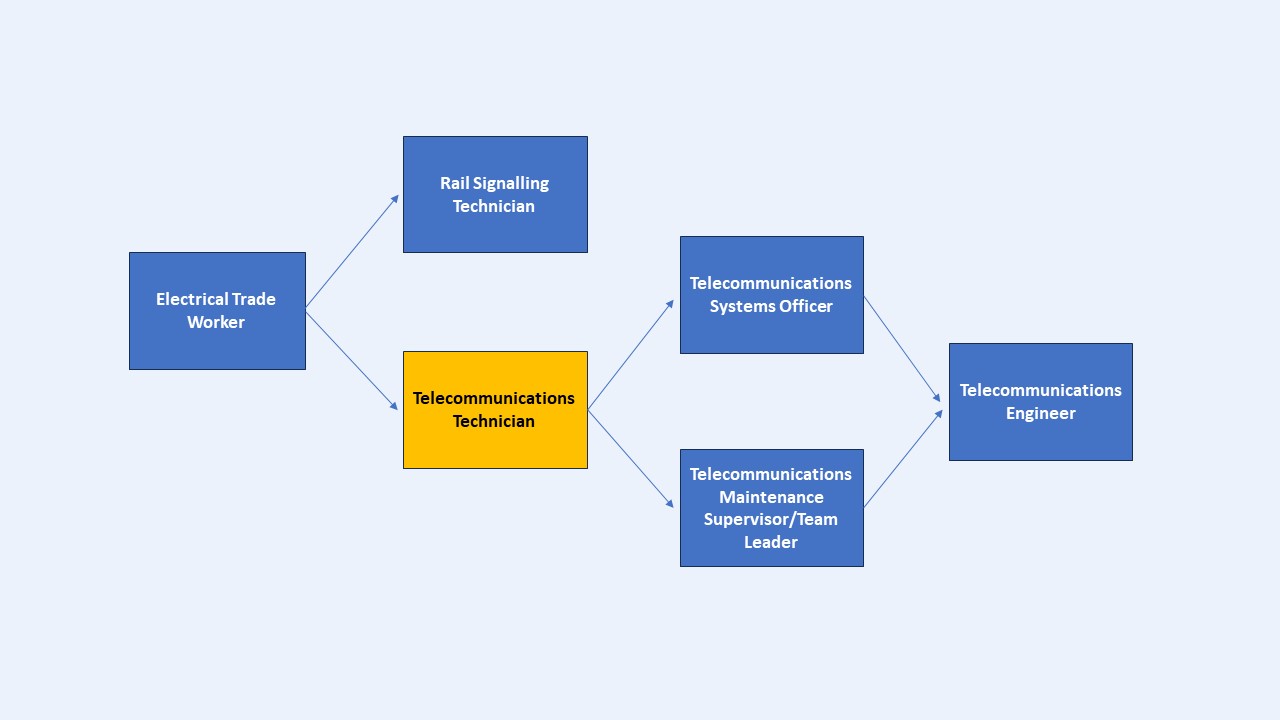
The role
They report on the performance and condition of telecommunications assets to ensure the safe and effective operation of the rail network.

Skills required to be a Telecommunications Technician
- a systematic approach to problem solving
- attention to detail
- ability to assess and plan
- risk management
- asset management
- dexterity and good hand-eye coordination
- ability to work at moderate heights as well as in confined spaces
Previous experience
Telecommunications technicians may come from a career in the:
- construction, defence or resources sectors
- IT sector
- electrical supply industry.
Minimum requirements
Generally, a relevant trade qualification at Certificate III level and/or experience will be required. Relevant fields include telecommunications, networks and electronics. Examples include Certificate III in Telecommunications Technology or Certificate III in Data and Voice Communications.
Licences in the specific trade (such as ACMA Open Cabler Registration and an electrician’s licence) may also be required.
Telecommunications Technicians may also need to meet medical requirements, have Safely Access the Rail Corridor accreditation and meet any other employer requirements such as having a:
- driver’s licence
- construction industry white card
- first aid qualification
- other specific qualifications or units of competency relevant to the work.
In some cases, these qualifications may be attained within an agreed period of time after employment begins.
Additional qualifications for career progression
Progression to more senior roles may come through experience and/or a Certificate IV in the relevant field: for example, Certificate IV in Telecommunications Engineering Technology or Certificate IV in Electrical - Data and Voice Communications.
What a Telecommunications Technician's career progression can look like

The minimum qualification to practice as a Professional Engineer is usually an appropriate bachelor or masters of engineering. However, it may be possible to progress into some engineering positions with relevant industry experience and further study at the diploma and advanced diploma levels.
This can include the following qualifications (which have specialisations in telecommunications network engineering):
- Diploma of Information Technology
- Advanced Diploma of Information Technology
(Requirements vary between systems and engineering disciplines, talk to your rail transport operator for specific information relating to their workplace.)
For more information on starting a career as a Telecommunications Technician in rail:
- talk to your careers adviser
- contact your local university or TAFE
- if you already work in rail, talk to your employer.
